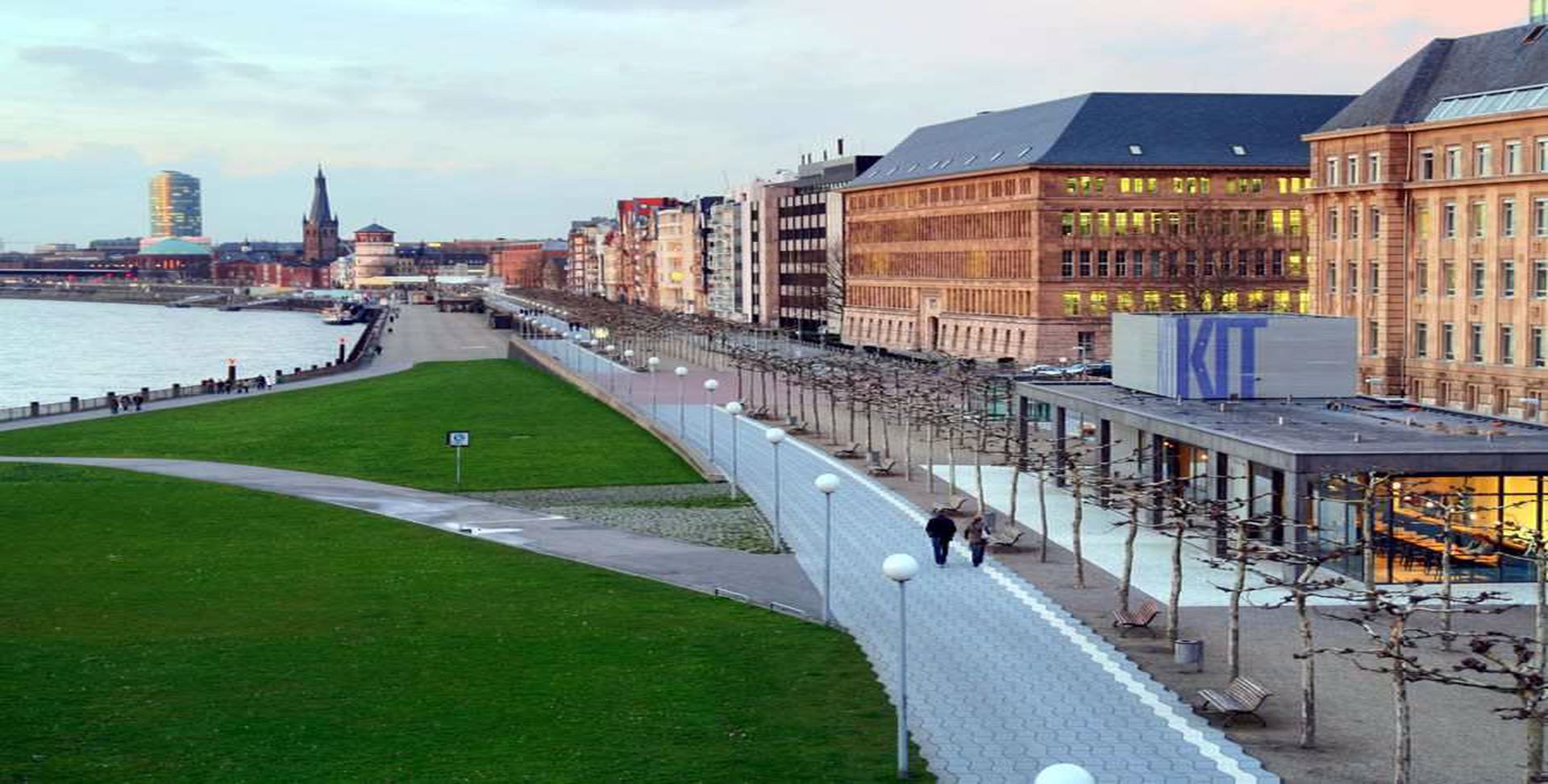

Real estate prices in Germany

Real estate prices Germany 2021
The developments in the German real estate market in recent years have raised the question of many potential buyers and sellers as to whether real estate prices will continue to rise. At this point, we therefore take a look at how prices have recently developed and which current factors will influence property prices in the future:
Contents:
1. Which factors influence real estate prices?
2. How are real estate prices developing?
3. What are the prices per square meter for condominiums?
4. What are the house prices for single and two-family houses?
5. How high are the real estate prices for multi-family houses / shared apartments?
6. Is it cheaper to buy a property than is generally assumed?
7. Where are property prices rising?
8. Local Market Reports: What do properties cost in different cities?
The entire property market in Germany has seen positive property price developments in recent years. The metropolitan areas of major German cities in particular were and continue to be characterized by price increases. The Corona crisis could not change anything in essence. It is true that the transaction numbers are expected to decline somewhat in 2020, as there was temporarily low trading activity in spring during the pandemic-related restrictions. However, this changes little in terms of the price stability of the properties themselves. On the contrary, real estate prices continued to rise in many places. There has also been a further increase to 33.6 billion euros in the segment of residential and commercial buildings and apartment buildings in recent years. In 2019 this figure even rose to 37.57 billion euros.
1. Which factors influence real estate prices?
Potential buyers often ask themselves what factors influence real estate prices and why they seem to have risen continuously in recent years. The value of a property is determined by numerous aspects. These include, for example, the year of construction, the equipment, the structural condition, the location and the surrounding infrastructure of the property. Of course, supply and demand also determine property prices to a considerable extent. In Germany, especially in the economically strong conurbations, there has been a demand overhang that has persisted for years - the number of available properties cannot therefore cover the actual demand. This is causing real estate prices to rise, especially in metropolitan areas, despite the current building boom.
2. How are real estate prices developing?
A further increase in real estate prices is expected for the coming year, especially in the metropolitan areas of Germany. There are many reasons why real estate prices and rents will continue to rise. An important factor is the discrepancy between the number of completed living space and the demand on the real estate market: especially in Germany's big cities like Berlin, In Munich and Hamburg, the number of new buildings cannot cover actual demand. Nevertheless, a distinction must be made between different locations when it comes to the development of property prices. Despite the generally high price level, there is a clear east-west divide as well as a sometimes clear difference between real estate prices in rural areas and in cities. In our Residential Real Estate Market Report Germany 2020/2021 you will find detailed information on how prices and rents are expected to develop in the 64 largest cities.
In our Residential and Commercial Buildings Market Report 2020 you will find developments and real estate prices for apartment buildings, apartment buildings and residential and commercial buildings. The picture is the same for these investment properties: prices are rising, especially in the metropolitan regions. As a result, there were yield compressions in many places, however, buying apartment buildings remains an attractive investment strategy that remains extremely profitable to buy. Above all, the persistently low level of interest rates leads to good financing options. Overall, the prices for residential and commercial buildings in Germany rose by an average of 56.7% from 2015 to 2020 (1st half of the year).
3. Prices per square meter of condominiums
In the condominium segment, Munich leads the Germany-wide 2020 ranking with square meter prices averaging 9,053 euros. The Bavarian capital follows Starnberg in second place - here the prices are an average of 7,473 euros per square meter. The Frankfurt metropolis followed in third place with an average square meter price of 6,453 euros. Fourth place went to Konstanz with 5,719 euros per square meter.
4. House prices: single and two-family houses
The purchase prices for one- and two-family houses also continued to rise in many German metropolises in 2020. The undisputed leader in this segment is Starnberg with average house prices of 2.08 million euros. Second place went to the Bavarian capital, Munich, where asking prices averaged 1.51 million euros for one- and two-family houses. Third place goes to Bad Homburg - a one- or two-family house is offered here for an average of 1.49 million euros. In fourth place is Heidelberg, where the average asking price is 1.16 million euros.
5. Real estate prices for apartment buildings / shared apartments
Real estate prices in the investment property segment (apartment buildings, apartment buildings, residential and commercial buildings) have risen sharply in recent years. As part of the residential and commercial buildings market report Germany 2019/2020, 67 cities were examined more closely. The highest asking prices in Munich in the first half of 2019 were 7,468 euros per square meter. Further metropolises follow at a greater distance, such as Frankfurt (4,228) and Stuttgart (3,796). Heidelberg surprises in fourth place with EUR 3,794 per square meter, an increase of 29.2% over the previous year. The complete ranking of the nationwide price dynamics can be found here.
6. Buying real estate cheaper than generally assumed
On the demand side, there has so far been little noticeable of a corona effect. The low level of interest rates promotes demand and immediate political aid such as short-time work prevents a sharp drop in purchasing power. As the real estate market reacts sluggishly to economic changes, it remains to be seen whether a longer-term economic crisis will also affect demand for residential real estate. According to a study by the Institut der Deutschen Wirtschaft (IW Köln), in 98% of the districts and urban districts, property is cheaper than renting. The persistently low interest rates and rental growth contributed to this. In addition, purchase prices for residential property have risen, but not as much as interest rates have fallen. As a result, the total financing volume for the purchase has sometimes been significantly reduced.
7. Where house prices rise
The top 7 cities are made up of the locations that represent the largest real estate markets in Germany. We have summarized for you in our forecast how real estate prices are likely to develop here in the future:
Berlin
The German capital continues to grow as an attractive and multicultural location. This is noticeable on the real estate market: In all locations, real estate prices are expected to rise in 2021, both in the condominium segment and in the one- and two-family houses. In the central, very good locations, houses achieve up to 9 million euros, condominiums in prime locations reach square meter prices of up to 21,000 euros. In the residential and commercial building segment, it remains to be seen what effects the rent cap will have. However, due to the strong excess demand, Berlin remains a very attractive investment location. You can find even more in-depth insights in our report on real estate prices in Berlin.
Hamburg
The Hanseatic city is undoubtedly one of the most desirable residential locations in Germany. The consequence here too has been rising real estate prices and rents for years. In the very good locations around the Alster and along the Elbe, however, it is assumed that asking prices will stabilize in the future. In all other locations, further increases in real estate prices can be expected. The price level for single and two-family houses in very good locations is currently up to 15 million euros. For condominiums in this location, asking prices of up to 25,000 euros per square meter can be achieved. Apartment buildings in Hamburg are sold in prime locations for up to 8,000 euros per square meter (up to a factor of 45). The price trend continues to rise - also on the outskirts and in the surrounding area. You can get further insights in our report on real estate prices in Hamburg.
Munich
Real estate prices in Munich continue to rise. The Bavarian capital occupies the top position nationwide in the current Ilkay Koenec ranking of asking prices for condominiums. With an average of 9,053 euros per square meter, the condominiums here are more expensive than anywhere else in Germany. However, the price level in the Isar city seems to be gradually stabilizing: No major price increases are currently expected in the good to middle locations. In the very good locations, investors and owners are already paying up to 25,000 euros per square meter for a condominium and 20 million euros for one and two-family houses. In 2018, prices of up to 32,000 euros / m² were called for luxury apartments. For apartment buildings in Munich in a prime location, 13,000 euros per square meter were charged during this period. Factors up to 43 are even achieved here, which is the highest value nationwide. Our real estate agents in Munich will be happy to advise you personally!
